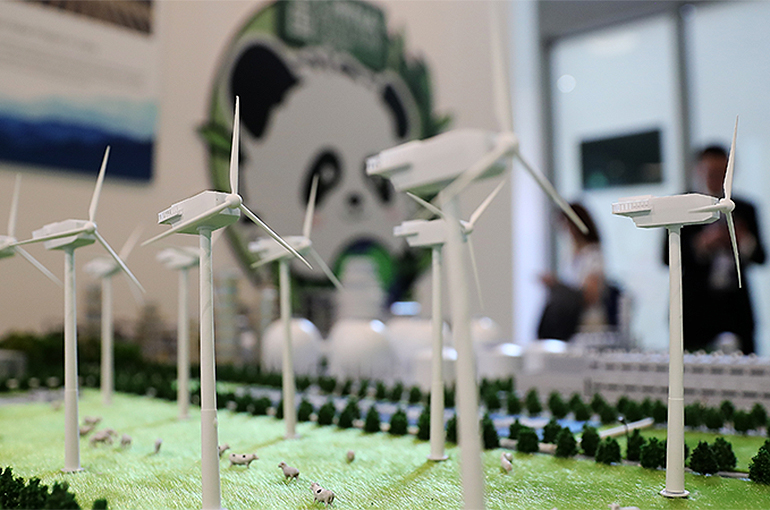 Chinese Investors Embrace Dubai Economic Agenda to Enter Middle East, Global Markets
Chinese Investors Embrace Dubai Economic Agenda to Enter Middle East, Global Markets(Yicai) July 12 -- With the introduction of the Dubai Economic Agenda, better known as D33 Agenda, Chinese companies and capital have begun investing in Dubai, taking the city in the United Arab Emirates as the entrance point to the Middle Eastern and global markets.
Dubai will not follow the same development pattern from light to heavy industries as China and India but will strive to attract more overseas manufacturers and capital investment in the financial technology, entertainment, and e-commerce sectors, several Chinese firms and investors with businesses in Dubai told Yicai.
The vice president and prime minister of the UAE unveiled the D33 Agenda in January last year. The D33 Agenda includes the launch of innovative projects that will drive sustainable economic growth through innovative approaches and double Dubai’s gross domestic product by 2033, making the city the fastest, safest, and most connected in the world.
Chinese new energy companies have been investing heavily in Dubai. The Middle East is known not only for the oil wealth but also for the sunshine, which supports the development of the photovoltaic industry, Mohammad Ali Rashed Lootah, president and chief executive officer of Dubai Chambers, told Yicai.
Dubai is attracting more investment in the high-tech and renewable energy sectors, such as electric vehicles and batteries, solar power plants, and equipment manufacturing, he added.
Dubai Chambers, one of the city’s largest economic development arms, has set up 31 international offices in various countries, including Shanghai, Shenzhen, and Hong Kong, hoping to attract more innovative companies to Dubai, Lootah pointed out. China is the only country where Dubai Chambers established multiple offices.
Dubai has formed an excellent PV ecosystem with independent power producers, Chinese-funded engineering procurement construction companies, and solar module manufacturer clusters, which makes it easier to establish business partnerships locally, Liu Xiaoqian, manager of the strategic marketing department at Longi Green Energy Technology, told Yicai.
Longi is a Chinese solar module giant. It opened its Middle East, North Africa, and Central Asia headquarters in Dubai in June last year as a gesture of commitment to expanding its presence in the region.
Another reason Longi chose Dubai is to get closer to its customers, including ACWA Power, Liu noted, adding that the city has a great location, allowing the local business team to efficiently travel to more than 80 countries and regions in the Middle East, Africa, and Central Asia.
Many Chinese private equity and venture capital funds also come to the Middle East to look for limited partners to co-invest in startups with growth potential.
Top Chinese venture capital funds have come to the UAE to look for opportunities, but it is not easy to seek cooperation with Middle Eastern sovereign funds like Mubadala Investment, especially for early-stage entrepreneurial projects, Zhu Xiujie, who has nearly 10 years of experience investing in the Middle Eastern technology industry, told Yicai.
Sovereign funds in the Middle East do not regard returns on investment as the main factors but hope to drive the diversified development of the country’s economy and obtain more technologies through investments, Zhu said.
Many cryptocurrency companies also consider Dubai an important investment destination. The UAE’s openness to cryptocurrencies has attracted many related firms to Dubai to seek compliant operations, Li Wei, chief technology officer at Chainbridge, told Yicai. Hundreds of crypto companies have chosen to locate their operation centers in Dubai.
Editors: Tang Shihua, Futura Costaglione